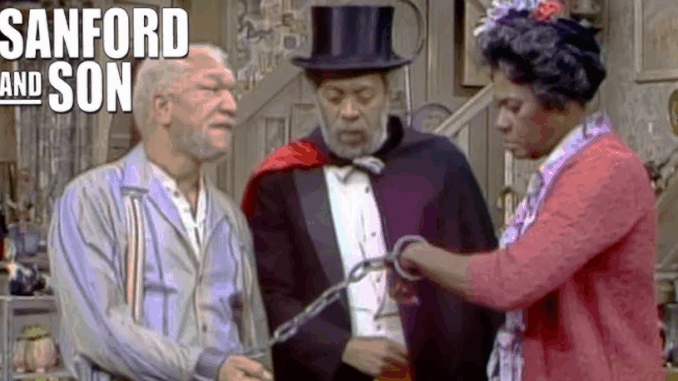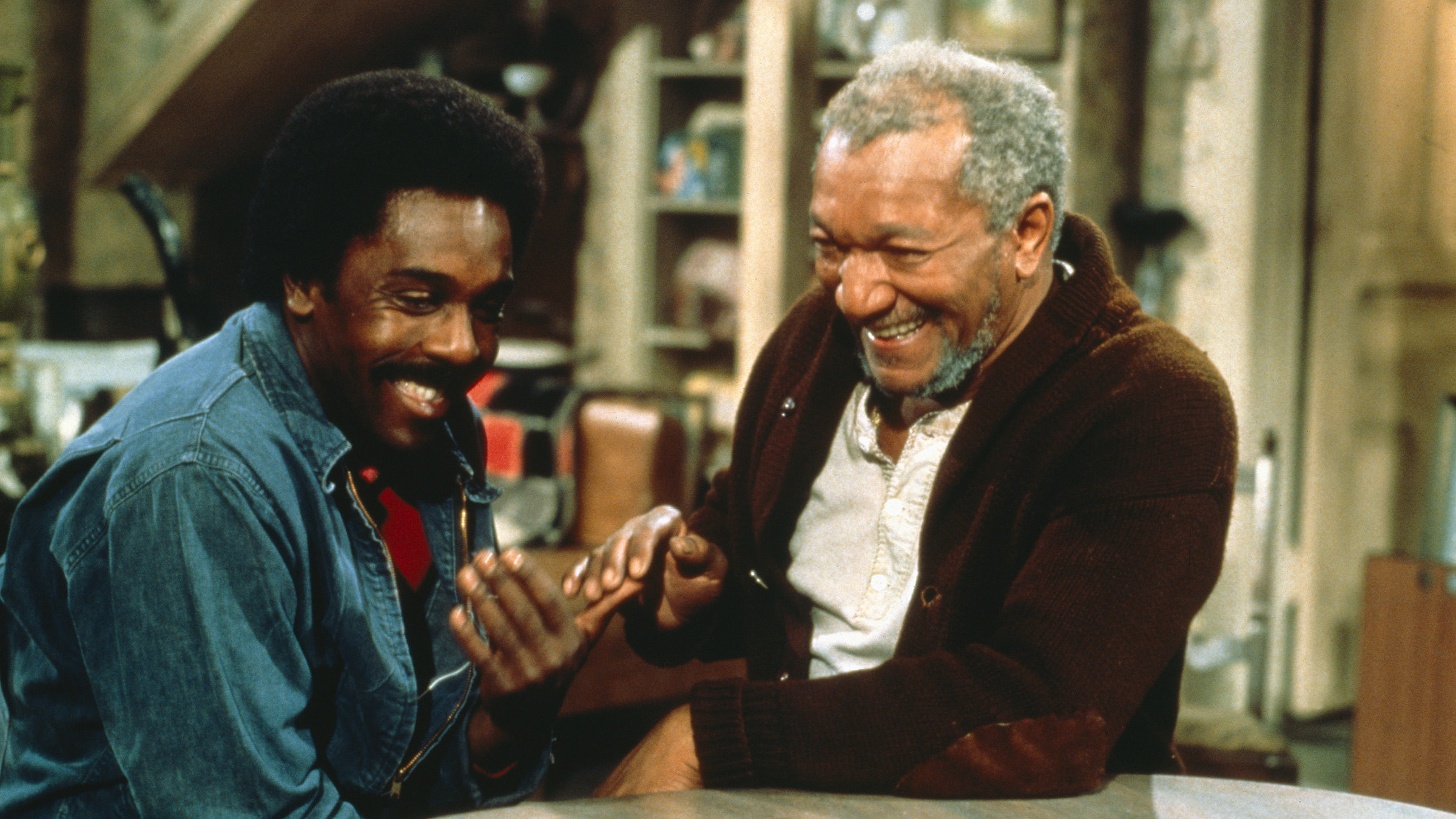
Sanford and Son was known for belly laughs and over-the-top one-liners. But underneath Fred’s fake heart attacks and Lamont’s eyerolls lies a story about aging, loneliness, and the complicated love between father and son — a story that hits differently now, in a world where elder care, mental health, and generational trauma are front and center.
Fred Sanford: A Man Out of Time

Fred isn’t just a grump — he’s a man watching the world change without him. His neighborhood is shifting. His wife is gone. His friends are dying or broke. His son wants something different. And Fred? Fred is holding onto his junk because he’s really holding onto memories.
Rewatching the show today, you start to notice: Fred Sanford is grieving.
He talks about Elizabeth constantly. He fakes heart attacks not just for attention — but maybe because he’s genuinely scared of death. There’s something deeply human in that fear. And it makes the comedy richer, not sadder.
Black Fatherhood in Prime Time
Fred and Lamont’s relationship is chaotic but honest. They argue. They insult. They cling. It’s not the sanitized father-son duo of 1950s television — it’s messy, codependent, and full of unsaid things.
In 2025, when Black fatherhood is still stereotyped or erased, Sanford and Son quietly offered a portrait of two men trying — clumsily, comically — to love each other.
Laughter as Survival
Fred makes jokes to survive. Lamont rolls his eyes to cope. The entire show is a lesson in how humor can become armor. When you’ve been left behind by systems, when your body is aging, when the world doesn’t make space for your grief — what’s left but laughter?